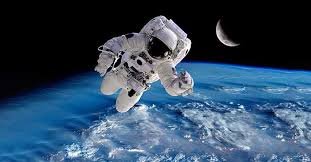What does it take to become an astronaut?
If you become an astronaut in the next 15 years or so, you’ll probably land on the International Space Station, an orbiting laboratory/dormitory more than 200 miles (330 kilometers) above Earth. Astronauts will spend at least three to four months growing plants, making crystals and performing other experiments in near-zero gravity.
Earlier, an Astronaut was thought to be a person who is an observer of some events taking place in the outer space and document it. Later, it was understood that simply observing and documenting extra-terrestrial events are not enough and humans must interact with these events.
An aspirant has to be a permanent citizen of India to be eligible to become an Astronaut in India. The candidate should have done their class 12 from a recognised board and should have done their PCM. The student should have scored a minimum of 65% aggregate marks.
The candidate should have done their BTech or BSc in Physics/Mathematics from a recognised university in order to be eligible.
The science which deals with the study of celestial objects and phenomena is known as Astronomy. Through Mathematics, Chemistry and Physics, scientists explain the origin and evolution of astronomy.
A Bachelor’s degree from an accredited institution in engineering, biological science, physical science, or mathematics.
At least three years of related, progressively responsible, professional experience. An advanced degree is desirable and may be substituted for part or all of the experience requirement (master’s degree = 1 year of experience, doctoral degree = 3 years of experience). Quality of academic preparation is important.
Ability to pass a NASA space physical, which is similar to a military or civilian flight physical and includes the following specific standards:
Distance visual acuity: 20/200 or better uncorrected, correctable to 20/20, each eye.
Blood pressure: 140/90 measured in a sitting position.
Height between 58.5 and 76 inches.
Here are some degrees to become an architect.
Master of science degree in aerospace engineering
Doctorate of philosophy in aerospace engineering
Degrees in Technology (Engineering Technology, Aviation Technology, Medical Technology, etc.)
Degrees in Psychology (except for Clinical Psychology, Physiological Psychology, or Experimental Psychology which are qualifying).
Degrees in Exercise Physiology or similar fields
Degrees in Social Sciences (Geography, Anthropology, Archaeology, etc.).
Degrees in Aviation, Aviation Management, or similar fields.
Indian Institutes of Technology, including Banaras Hindu University (BHU)
Punjab Engineering Colleges (limited seats)
U.P. Engineering Colleges (limited seats)
School of Mines, Dhanbad
Birla Institute of Technology, Ranchi, Bihar
Birla Institute of Technology and Science, Pilani, Rajasthan
University of Roorkee, U.P.
Regional Engineering Colleges
Manipal Institute of Technology, Manipal
Annamallai University, Faculty of Engineering and Technology.
Naval College of Engineering
Indian Institute of Astrophysics, Bangalore
Indian Institute of Science, Bangalore
Raman Research Institute, Bangalore
Inter-University Centre for Astronomy and Astrophysics, Pune
National Centre for Radio Astronomy, Pune








